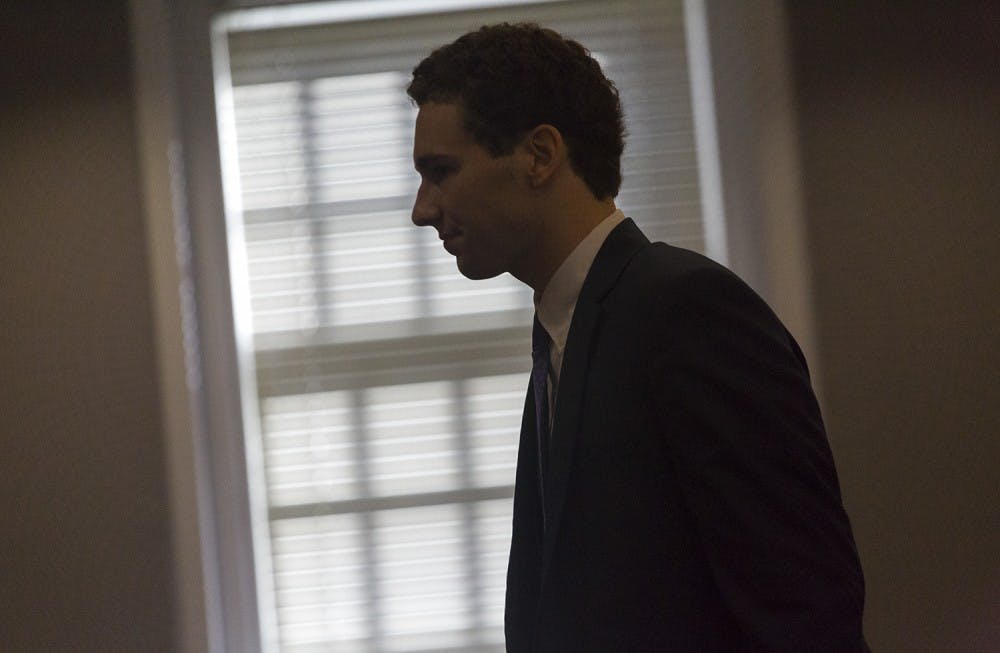These numbers define the state’s trial against former UNC student Chandler Kania, but behind these numbers are the people affected by the deadly wrong-way drunken driving crash on Interstate 85, which left three dead and one injured.
On Monday, a jury convicted Kania, now 21, of three counts of involuntary manslaughter and one count of reckless driving.
They found he did not act with malice, so they found him not guilty of second-degree murder.
Before the trial began, Kania pleaded guilty to various criminal charges, including felony death by vehicle, a Class D felony. Felony classes are ranked in descending order starting with A, Assistant District Attorney Jeff Nieman said, so the jury’s conviction of involuntary manslaughter, a Class F felony, had little to no effect on sentencing.
Judge Henry Hight Jr. sentenced Kania to 12 years and 8 months to 16 years and four months in prison. He said he hoped this would be an example of drunken driving’s disastrous consequences.
The trial’s result was celebrated by neither the state or prosecution. Family members of the three people who died in the crash —Darlene McGee, 46, Felecia Harris, 49, and Jahnice Beard, 6 — testified about their ongoing heartbreak prior to sentencing and expressed displeasure after.
Jahnice Beard’s parents sat in the courtroom and listened to the verdict and Kania’s sentencing. After court adjourned, Beard’s father and Harris’ son, Jahmonie Smith, spoke about the outcome of the trial.
“I’m disappointed in the verdict,” Jahmonie Smith said. “I didn’t feel like he got enough time for what he did. My daughter’s six years old. She ain’t get to live her life and he did and he took that from her.”




